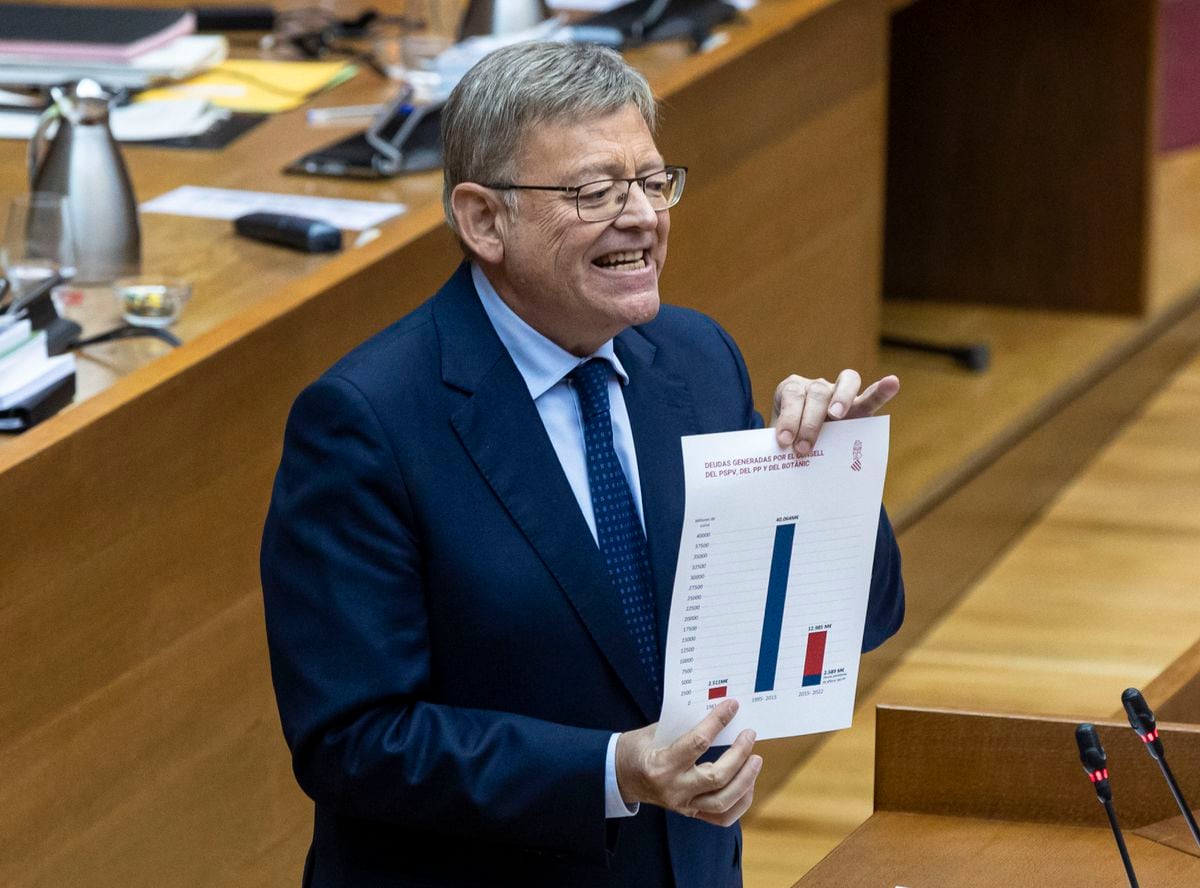The Government tried until the last moment to stop the tax reduction of the autonomous section of the IRPF below 60,000 euros that Ximo Puig, the Valencian president, announced on Tuesday.
The pressures came from all levels, according to sources from both Executives, but they were unsuccessful.
Puig was completely determined to move forward on an issue that he had already raised for more than a month, and that he considered a political compromise with no way back.
In the final stretch of the discussion, seeing that Puig and his team were going ahead, the Minister of Finance, María Jesús Montero, called the counselor for this branch, Arcadi España, on Monday to ask him to stop the announcement that Puig had planned to make. on Tuesday, in the debate on the state of this autonomy.
Montero, who has publicly explained that he is against a general tax cut because it sends a very negative message at a time when public revenue is needed to deal with the crisis and to maintain redistributive policies, insisted before the councilor Spain in that this measure completely broke the Government's discourse and was going to be used by the PP —as it finally happened— to attack the Executive and demand that it do the same as the Generalitat throughout Spain, something unfeasible according to the minister due to the great drop in collection that it would cause.
Below 60,000 euros is the heart of income tax collection, since from that amount the number of taxpayers drops a lot.
The great mass is there.
Montero insisted over and over again on the inappropriateness of the measure,
The Minister of Finance, María Jesús Montero, intervenes during a plenary session in Congress this Wednesday.
EDUARDO PARRA (Europa Press)
However, from the Generalitat they argued that this is not a last minute decision by Puig, but a commitment made a month ago, when the controversy over the announcement by the Junta de Andalucía, in the hands of the PP, of the elimination of wealth tax.
Puig was completely determined to go ahead because he believes that this drop is a very positive message for the middle and low incomes, which are the ones that are suffering the most from the crisis.
In addition, he justified that it is something that does not imply a large drop in collection - some 150 million euros reduction on a Budget of 28,000 that the Generalitat Valenciana has - and that can be compensated with the reinforcement that it is making to high incomes and also with the Patrimony tax, which contrary to what Andalusia does,
Montero insisted on rejecting the initiative because of its substance and because of the political issue.
The bottom line, as she has explained publicly, is that you cannot ask for more funding with one hand, as almost all communities do, especially Valencia, and lower taxes with the other.
And furthermore, it is not coherent either, Montero insists, to ask, on the one hand, Europe for 140,000 million euros and, on the other, that the countries that have contributed the most to that fund, such as Germany, see that Spain is lowering taxes when It is known that it has a much lower fiscal pressure than most of the EU countries, especially those that have contributed the most to the fund.
But there was also a local political reason, and it is the position of the PP, which has lowered personal income tax for incomes below 40.
000 euros a flag and that can be used by the movement of the Valencian Community against the Government.
In fact, it was, and quickly the popular put Puig as an example.
From the Generalitat they argued that then Alberto Núñez Feijóo would also have to defend Puig's decision to maintain the Patrimony tax.
Montero insisted that this decision by Puig broke the fiscal discourse of the Government just when he was making the PP lose this debate due to its controversial decision to lower taxes on the richest.
In the background of everything is the electoral horizon.
The Valencian Community, lost Andalusia, is the jewel in the crown of the PSOE, and has elections next year like most of the autonomies.
After the Compromís crisis, in which the vice president, Mónica Oltra, resigned, and with the weakness of Podemos, the government is at risk.
The PP is very weak in this community after years of corruption scandals, but the collapse of Ciudadanos has made it more competitive and it will fight to try to recover a community that was part of the PP for 20 years, until 2015. In this context, Puig has wanted to make a gesture towards the working middle classes that the Government has made fatal.
In the Generalitat they argue that this decision does not go against the central government, far from it, and it is not a general reduction, which the EU rejects, but a selective one, because it only goes to some medium and low incomes, and it will not mean a decrease in public income affecting social services or forcing cuts.
In fact, they try to argue that it is not very different from other selective reductions announced by the Government, such as the VAT on electricity or gas.
In addition, they insist that the IRPF of this community is one of the highest because they have never entered the downward tax competition of the PP communities.
However, all these arguments did not convince Montero, who tried to stop her until the last minute, without success.
Once the enormous difference was verified,
Subscribe to continue reading
read without limits
Keep reading
I'm already a subscriber

